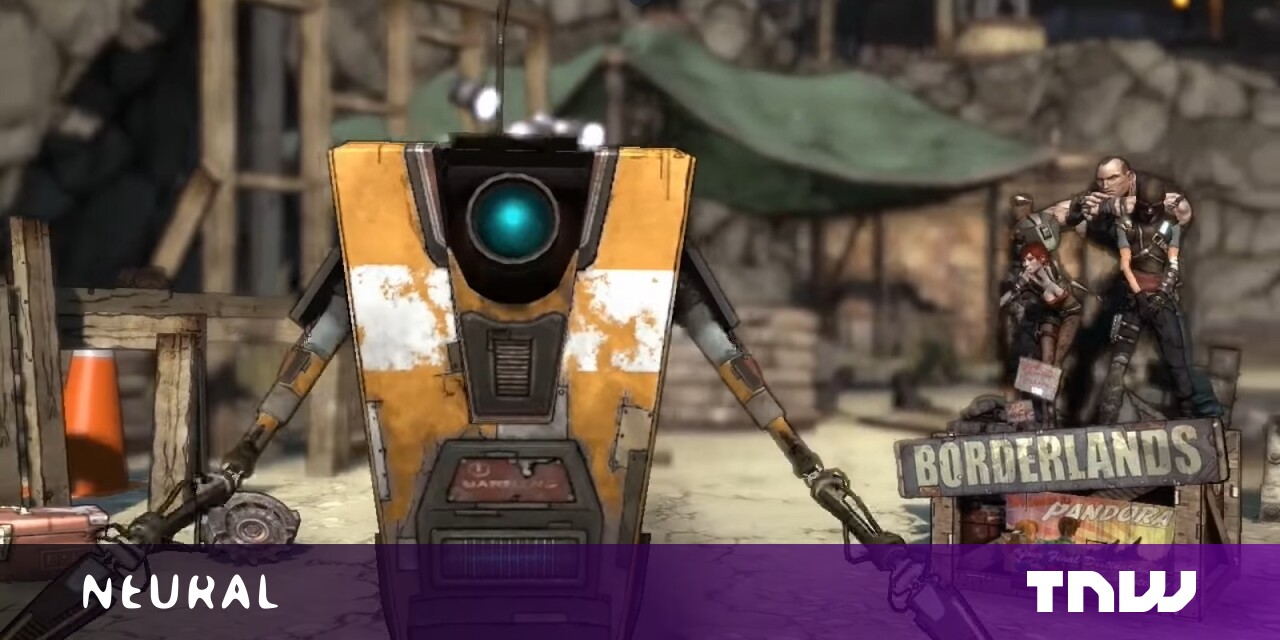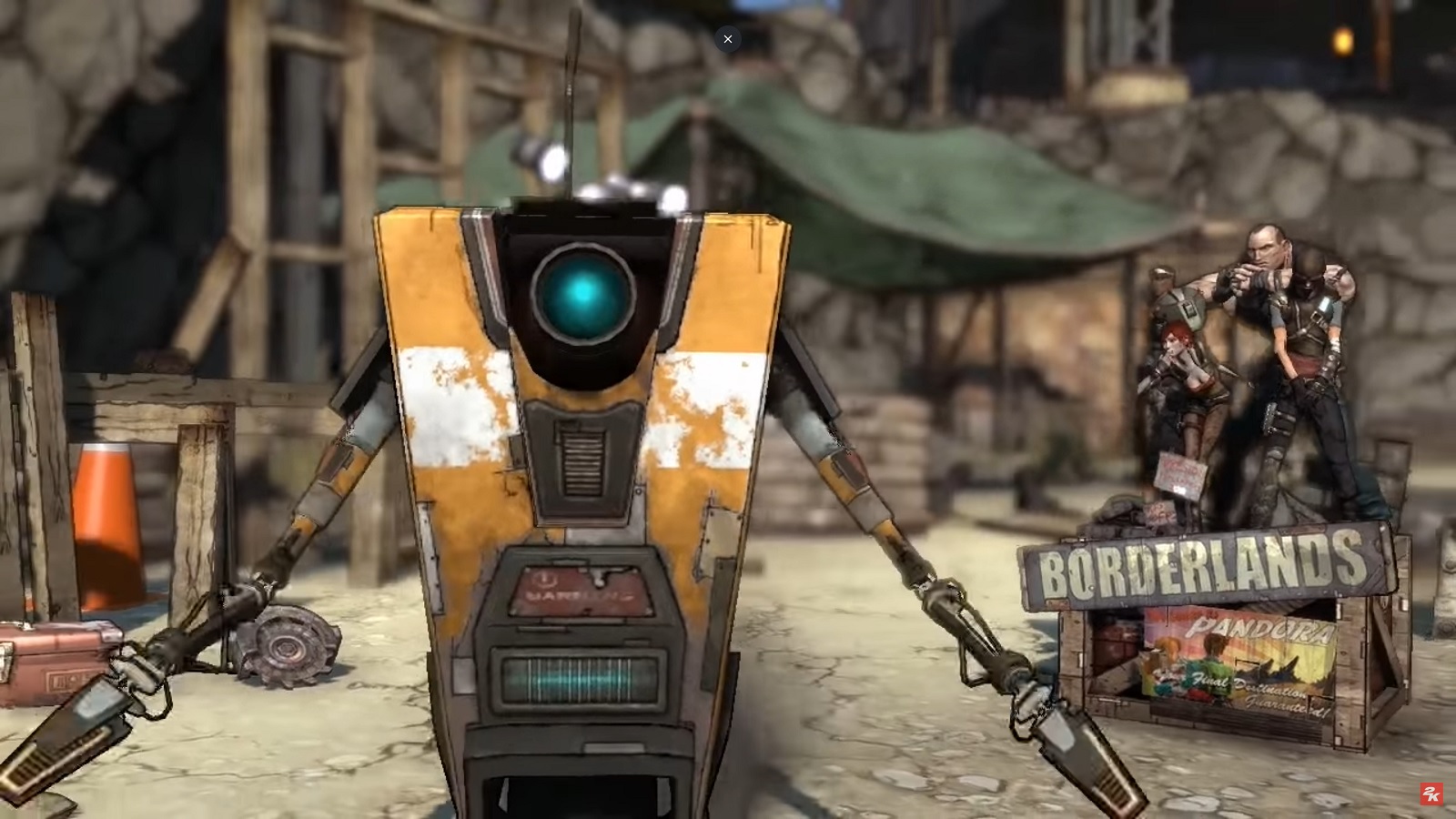
There’s something cool and meta about interacting with, playing as, or fighting against an artificial intelligence in video games. AI has captured our imagination in print, film, and even song, but games give us the space to interact with and see fantastical worlds from otherwise impossible perspectives.
To be absolutely clear, this isn’t about the games with the smartest “CPU AI.” We’re not discussing whether the “AI” in a game is tough to beat. We’re talking about fictional depictions of artificial intelligence. Here’s a handy primer on the difference between the two concepts.
This was a tough list to make and I probably left your favorites off, but it’s only because I decided that “best” meant: the ones I felt had the most impact.
I hope you agree with at least one or two items on this list, but honestly, if you don’t and it starts a conversation about AI in video games, then that’s just as good.
On to the list:
Number Five
No, not the spunky little military murder machine cum friendly fugitive “Number Five” (AKA Johnny Five) from the 1980s film “Short Circuit,” we’re starting the list backwards so we can count down to number one.
The Cylons from Battlestar Galactica: Deadlock kick things off because, well, they’re the perfect villain for a hardcore strategy wargame.
[embedded content]
I love BSG:DL for a lot of reasons. As far as turn-based-tactical strategy games go I’m hard-pressed to think of one I enjoy more. In essence, it’s a naval combat game with the additional challenge of a vertical axis. The scope of the game is large enough to show off the enormity of your command vessels and the dozens upon dozens of ships all participating in the maneuvers and reactions dance that is tactical warfare.
But what truly sets it apart is the enemy. When I play most war/strategy games I’m forced to reckon with a certain level of politics. When I drop bombs on enemy cities in Hearts of Iron IV or send my warriors to sack a town in a round of Civilization VI, I know I’m killing innocent digital civilians too, I just can’t care if I want to win.
And that’s probably a good thing. We don’t want to get bogged down in the viscera and horror of war when we, for example, play the classic Battleship board game. It’s just a game, right?
But Battlestar Galactica: Deadlock lets me face the reality without feeling like a genocidal jerk. The Cylons aren’t humans. And, while they are sentient and probably deserve to live, it’s made abundantly clear that they won’t rest until every last human has been destroyed. And that gives the entire game a sense of gravitas and urgency that you just don’t get when you’re painting the map in most strategy games.
Number four
This was an easy one: It’s Claptrap, it’s Claptrap, it’s always been Claptrap! I adore Claptrap. In fact, I’ve never met a gamer who doesn’t.
[embedded content]
Claptrap is one of the best things to ever come out of the celebrated Borderlands franchise. It first appeared in the original game as a sort of guide and his role continued to grow until, finally, it was made a playable character in the Borderlands Pre-Sequel, which was the third title released.
There was a bit of controversy surrounding the release of Borderlands 3 because the original person who voiced Claptrap, a Gearbox employee named David Eddings, chose not to reprise the role. According to reports, he wasn’t offered money commensurate with the gig. Gearbox said that wasn’t the case.
At any rate, while I certainly missed Eddings and laud their work as among the best in video games, their replacement, Jim Faronda, did an excellent job in part 3 as well.
Aside from being genuinely entertaining, hilarious, and occasionally endearing, the reason I included Claptrap on this list and not, say, LGBTQPIA+ icon FL4K, is because Claptrap isn’t just a supporting character (and one time playable character): it’s a buffer between the gory nature of the game with its psychopathy-is-the-norm attitude and the random silliness that pervades the game’s world.
Without Claptrap, Borderlands is just Mad Max with fart jokes.
Number three
My personal favorite AI character of all time is GLaDOS. This AI was once a human before becoming a disembodied voice, a chip on a potato (get it?), and eventually a robot. The reason I like GLaDOS so much is because it’s just flat out sassy. It’s the AI I’d most want to hang out with at a party. But, like, in a snarky queer way where we mock everyone else.
[embedded content]
Portal was one of those games that changed the way everyone looked at gaming. People weren’t ready for the game’s stunning combination of jaw-dropping graphics, gut-busting comedy, and incredible game play.
But most of all they weren’t ready for the psychotic, murderous, cake-loving-and-lying-about intelligence that is GLaDOS.
GLaDOS, for my money, is the most entertaining AI in games. Not only is it hilarious, it’s also a talented singer. The end credits for Portal feature the entity singing a song called “Still Alive” that was so catchy it ended up in Rockband 3.
Number two
The robot species from Synthetic Dawn, a Stellaris DLC. There’s no one character here I can point out, but that’s why it’s a very close second to being my favorite fictional AI. You are the AI in Synthetic Dawn.
Stellaris is a grand strategy game set in space where you control an entire civilization. With Synthetic Dawn you’re able to become a sentient AI species, and that means understanding and dealing with the unique challenges that come from leading machines in a galaxy full of organics.
[embedded content]
The writing is excellent and the art and events are fantastic, but what really shines here is the little things. Playing as machines fundamentally changes the experience of governing in Stellaris in so many small ways that it, essentially, becomes an entirely different gaming experience.
With a mid-game crisis beating at your borders, enemies in every direction, and at least half the galaxy under the belief that your species doesn’t matter, life as an AI civilization is tough. But it’s also full of unique situations. You’re, for example, given the opportunity to purge organics and use their life-force as energy to power your growth ala The Matrix. And, in the course of many games, you’ll find ancient machine intelligences who’ll respond to your species in ways those living creatures could never understand.
[Related: Games to play on date night: Rule the galaxy together in Stellaris]
Maybe I’m biased, but as someone who gets paid to think about what it’ll be like if AI ever becomes sentient, I find embodying robots at the political, economic, and military level in a game to be extremely thought-provoking.
Number one
As much as I enjoy being the machines in Stellaris, Cortana is clearly the winner here. As far as I know, there’s never been a character from a video game that literally manifested in real life before Cortana stepped out of the Xbox and became everybody’s secretary.
[embedded content]
Today, Cortana’s most used as Microsoft’s version of Alexa or Siri. In fact you’ve probably got the little circle icon down at the bottom left of your taskbar right now if you’re on a PC. You can click that and, just like Masterchief, ask Cortana to help you out.
But, before it was just another AI we mostly use to ask how old celebrities are (I can’t be the only one), Cortana was the heart and soul of the Halo franchise. You might be thinking that was the dude in the big green armor with the gun that looked suspiciously like the one from Ridley Scott’s “Aliens,” but it was clearly Cortana.
Halo was an early graphical science fiction shooter, but it looked and played a lot like a modern warfare game. Warthogs really just looked like fancy Humvees and most of the human weapons, buildings, and vehicles had a pretty modern aesthetic. I can only assume this was to make them sympathetic protagonists we could identify with when viewed against the colorful, spiky, alien enemies.
Cortana was the far-future plot piece Halo needed to keep players in the science fiction mindset when they were trekking across brown, green, and gray landscapes. And, in some ways, it remains the same in the real world.
While we live in a world where the discourse on AI more and more often concerns our fears over privacy, misuse, and misalignment, Cortana kind of, sort of, reminds us that things have changed quickly in the past few years. We couldn’t always just say “Cortana, what’s the whether like in Amsterdam right now?” and have a pleasant-sounding robot give us the correct answer.
Cortana reminds us that the future is now. And, doubtless, it was instrumental in inspiring the development of the AI systems we use today.
Published March 17, 2021 — 23:51 UTC
